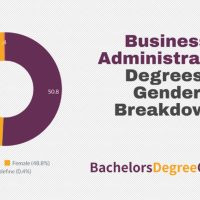Top Books on Educational Psychology - Blog

Top Books on Educational Psychology
Educational psychology is the study of how people learn and how they can be assisted in doing so. It focuses on emotional, social and cognitive aspects of learning as well as how individuals can overcome obstacles that might prevent them from grasping information properly or retaining it well.
Studying psychology can be both highly rewarding and challenging. It requires that you have excellent communication skills, often working alongside other professions such as teachers, psychologists, social workers and counsellors. This field of study offers ample opportunity for growth and development throughout your academic journey.
Educational psychology books can give you a deeper insight into this dynamic field, so having an extensive library is important for success. Here is our selection of must-reads that will give you a solid grasp on what this discipline entails and how it can be applied in the classroom.
Multiple Intelligences Theory: Howard Gardner popularized this idea that there is no single type of intelligence, but rather several distinct varieties influenced by genetics and environment. It’s an insightful viewpoint that has revolutionized how we think about education and how children can achieve success in school.
Character versus Intelligence: Offering an innovative perspective on educational psychology, this book suggests that character traits such as curiosity, optimism, perseverance and self-control are more crucial for a child’s success than mere intelligence alone. Drawing inspiration from real world examples, this book will show you how these attributes can be leveraged to make students more successful in the classroom.
Problem Solving: According to leading cognitive psychologists, problem solving is essential for learning and remembering information. It involves assigning a question to a schema in long-term memory and retrieving it when you need to recall that same information for future reference.
Cognitivism: Cognitivism is a more subtle version of behaviourism that places emphasis on mental processes rather than outward appearances. This approach has become widely adopted within educational psychology circles as the ‘thinking school’ and proven successful at encouraging students to take ownership in their learning process.
Developmental Theories: Jean Piaget was an early proponent of this theory, which states that people can be taught skills and concepts as they progress through different life stages. This understanding helps educational psychologists comprehend how people learn and develop over time, making it simpler to instruct young students the correct method for learning.
Research: As an educational psychologist, having strong research skills are invaluable. These abilities will allow you to design and conduct studies within the field of psychology as well as help solve any issues your clients may be facing.
Social Justice: Becoming well-versed in the interplay of environmental (race, gender, disability, trauma) and personal (beliefs, perception, cognition, affect and self-regulatory factors) factors is an integral part of educational psychology; it seeks to address challenges facing students, educators and all others involved in the educational system. It’s essential that you can engage with various views within this field while encouraging open dialogues where different voices are valued and respected.




